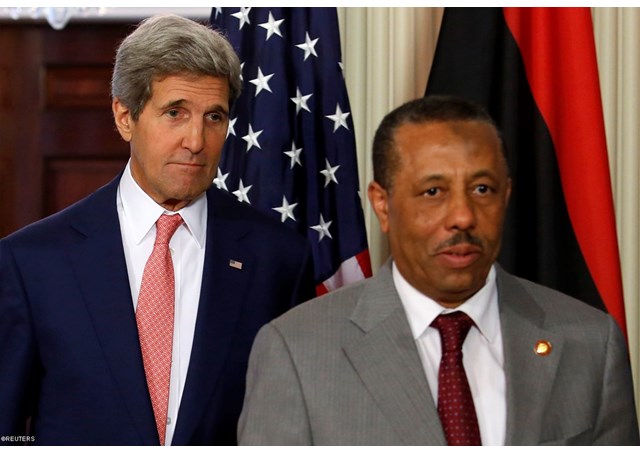
United Nations expresses concern for Human rights in Libya

(Vatican Radio) The Spokesperson for the United Nations' High Commissioner for Human Rights, Ravina Shamdasani has spoken about the human rights situation in Libya and commented on the situation in Iraq and on the Argentinian grandmother and human rights defender, Estela de Carlotto,.
Speaking in Geneva Shamdasani said about Libya:
We are very much concerned about the situation in Libya, where a conflict between multiple armed groups has been raging primarily in Benghazi and Tripoli. Frequent indiscriminate shelling of heavily populated areas in both cities by the rival sides has been reported, leading to the death or injury of civilians, including children. Living conditions for civilians in both cities have steadily deteriorated, with food, fuel and electricity in diminishing supply. Health facilities have been severely affected by the violence and common criminality is on the rise. Armed groups from both sides have taken prisoners and we are receiving initial reports of torture that we are investigating. In addition, attacks against media professionals continue.
We wish to remind all parties involved in the hostilities that under international law indiscriminate attacks are war crimes, as are attacks on civilians or civilian objects such as airports – unless such civilian facilities are being used for military purposes. Torture is also a war crime. The direct perpetrators of any such crimes in Libya, as well as commanders who order or fail to stop the commission of such crimes, can be prosecuted, including by the International Criminal Court. There should be no impunity.
We appeal on all sides to immediately end all violations of international law. We hope that the fighting itself will end and that Libyans will engage in peaceful dialogue to resolve their differences.
At the same time, Shamdasani made reference to the situation in northern Iraq.
She said: We are deeply alarmed by the situation in northern Iraq, and in particular the situation of vulnerable minority groups, including the Yezidi, Christian and Turkomen communities. We are gravely concerned for the physical safety and the humanitarian situation of the large number of civilians trapped in areas under the control of the Islamic State in Iraq and the Levant (ISIL) or in areas affected by the violence.
Widespread or systematic attacks directed against any civilian populations because of their ethnic background, religion or belief may constitute a crime against humanity. All parties, including ISIL and associated armed groups, must abide by international humanitarian law, including the obligation to protect the civilian population. We call on the international community and the Governments of Iraq and the Kurdistan Region to take all necessary measures to ensure the protection of civilians, in particular those belonging to the vulnerable communities.
Speaking about the Argentinian grandmother, Estela de Carlotto, the UN High Commissioner for Human rights spoke of the UN’s pleasure at the news that Argentinian grandmother and human rights defender Estela de Carlotto, who is president of the Association of Grandmothers of Plaza de Mayo, has discovered the identity of her grandson, after decades of perseverance. Carlotto’s grandson was among an estimated 500 children who disappeared during the military dictatorship in Argentina between 1976 and 1983. He was born in 1978 during his mother’s clandestine detention by the military. His mother, Ms Carlotto's daughter, was killed two months after the birth. His father was also among those illegally detained and later killed.
Of the estimated 500 children disappeared during the military dictatorship in Argentina, only 114 have been located.
The courage, perseverance and determination that grandmothers of disappeared children in Argentina have demonstrated over the past three decades continue to inspire human rights defenders across the globe.
The Grandmothers of the Plaza de Mayo and other human rights associations in the region have made a tremendous contribution to the UN human rights system, and have advanced the application of scientific methods towards resolution of human rights issues.
Enforced disappearance is a human rights violation that repeats itself daily for the families of the disappeared and we call on authorities in all parts of the world to redouble their efforts to discover the fate of such individuals and to ensure that the rights to justice and reparation are realised.
Source: rshamdasani@ohchr.org
| All the contents on this site are copyrighted ©. |


